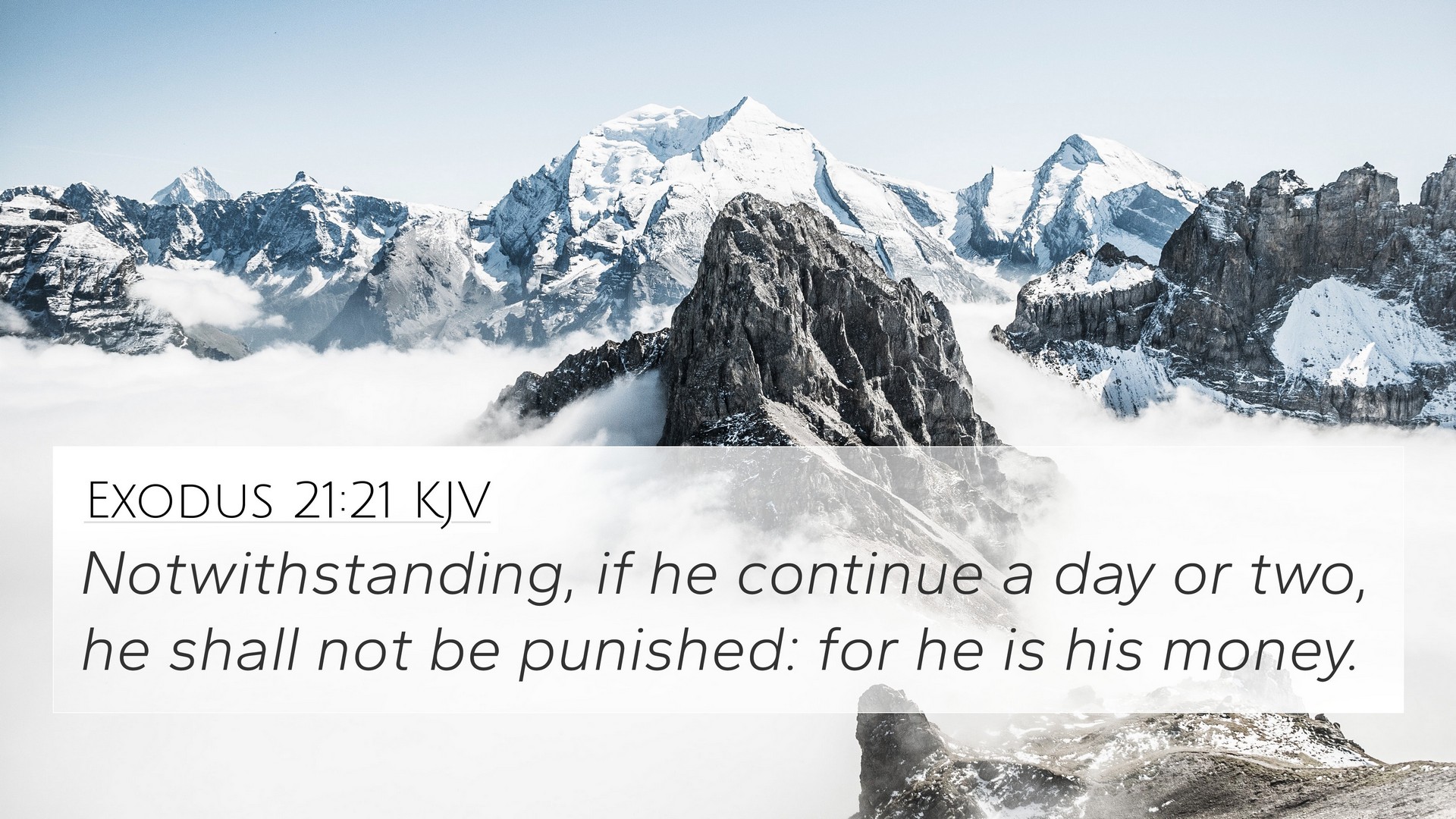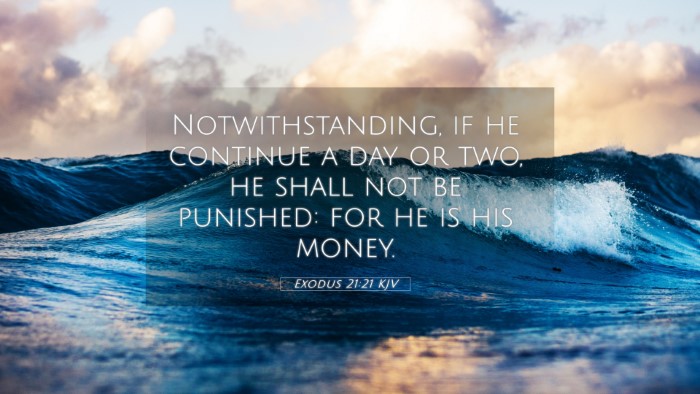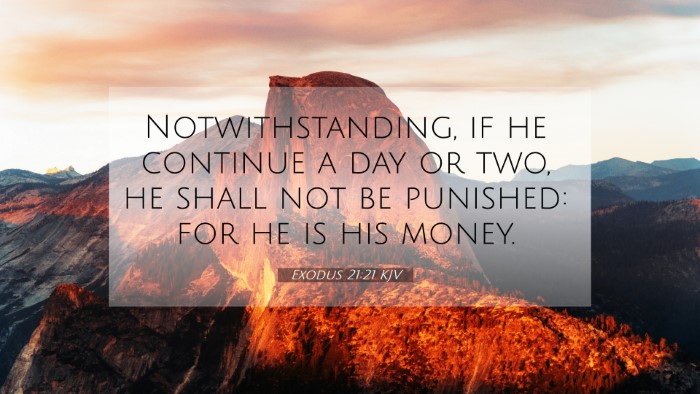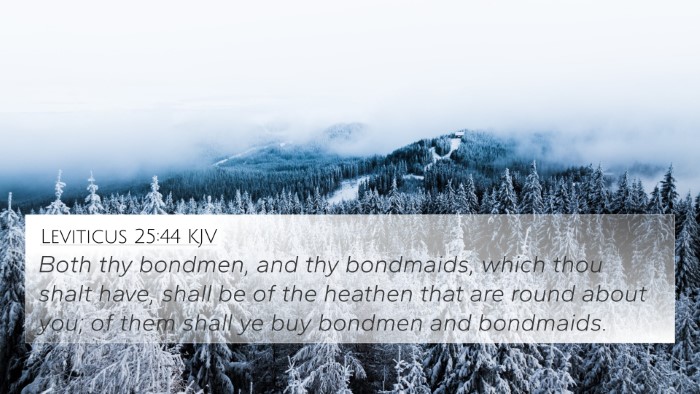Exodus 21:21 - Verse Meaning and Commentary
Verse: "But if he be in it a day or two, there shall be no revenge; for he is his money." - Exodus 21:21
Contextual Overview
This verse is part of the Mosaic Law, which includes various regulations regarding personal injury and servitude. In this context, the verse addresses situations where a servant is injured or harmed by their master. The passage suggests that if the injury does not lead to long-term consequences, then no further punishment or retaliation is warranted.
Commentary Insights
-
Matthew Henry's Commentary:
Henry emphasizes the principle of justice over vengeance. He notes that the recompense for the injury should be proportional to its severity. If a servant is incapacitated temporarily, Henry argues, the master should not be held accountable in the same way as for permanent harm. This shows a balancing act of mercy and responsibility within the laws given to Israel.
-
Albert Barnes' Commentary:
Barnes explains that the provision reflects a view of social and economic realities at the time. A servant’s life was tied to their master’s wealth. If the injury is deemed minor, it would be unjust to demand harsh consequences, thus protecting the economic interests of the master as well. This illustrates a practical approach to justice rather than one driven solely by emotional response.
-
Adam Clarke's Commentary:
Clarke notes that any injuries must be assessed on their impact over time. A brief incapacity does not equate to a significant loss, meaning retaliation is unwarranted. Clarke further highlights this verse’s role in encouraging fair treatment of servants and establishing legal guidelines that curb excessive punishment or retribution.
Thematic Connections and Cross-References
Exodus 21:21 can be explored in relation to several other verses that reflect themes of justice, mercy, and social responsibility. Below are significant cross-references and their implications:
- Exodus 21:20: Discusses the consequences for treating a servant harshly, providing context for the leniency expressed in 21:21.
- Luke 6:31: "And as ye would that men should do to you, do ye also to them likewise." This principle reflects the attitude of fairness highlighted in Exodus 21.
- Matthew 5:38-39: Jesus teaches about turning the other cheek, which resonates with the lack of vengeance portrayed in this law.
- 1 Timothy 6:1: Advises servants to honor their masters, connecting to the expected treatment within the servant-master relationship.
- Galatians 6:7: "For whatsoever a man soweth, that shall he also reap," emphasizing accountability and the consequences of actions.
- Deuteronomy 24:6: Discusses fair treatment and justice, reinforcing the notion of measured responses to wrongdoing.
- Proverbs 30:10: "Accuse not a servant unto his master," highlighting the protection of workers against undue accusations.
- James 2:13: "For he shall have judgment without mercy, that hath shewed no mercy," which stresses a reciprocal relationship in justice.
- Romans 12:19: Encouraging believers to leave vengeance to God aligns with the spirit of Exodus 21:21.
Conclusion
In summary, Exodus 21:21 serves not only as a legal guideline for the ancient Israelites but also as a foundation for understanding broader principles of justice and mercy that resonate throughout both the Old and New Testaments. This verse encourages reflection on how we should treat one another, ensuring that justice is tempered with compassion, particularly in social contexts where power dynamics are in play.
For Further Study
Exploring cross-referencing resources can deepen understanding of scripture connections. Tools such as a Bible concordance or a Bible cross-reference guide can assist in identifying Bible verses that relate to each other, as well as in undertaking a comparative Bible verse analysis.



